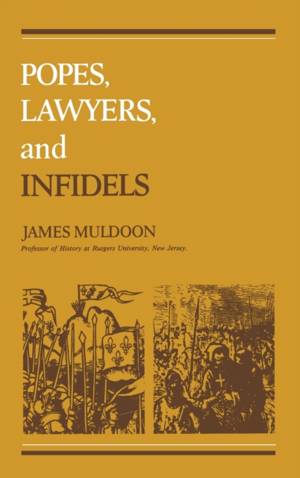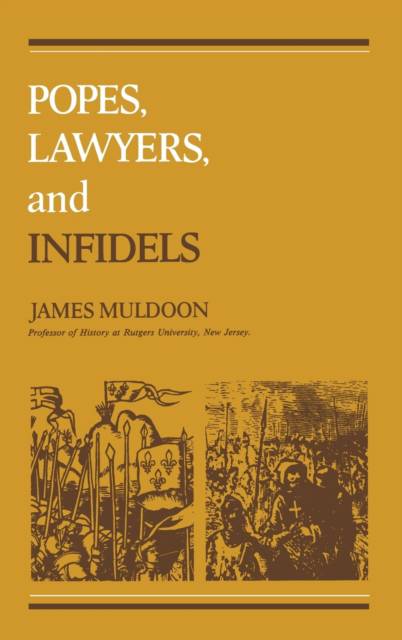
Bedankt voor het vertrouwen het afgelopen jaar! Om jou te bedanken bieden we GRATIS verzending (in België) aan op alles gedurende de hele maand januari.
- Afhalen na 1 uur in een winkel met voorraad
- In januari gratis thuislevering in België
- Ruim aanbod met 7 miljoen producten
Bedankt voor het vertrouwen het afgelopen jaar! Om jou te bedanken bieden we GRATIS verzending (in België) aan op alles gedurende de hele maand januari.
- Afhalen na 1 uur in een winkel met voorraad
- In januari gratis thuislevering in België
- Ruim aanbod met 7 miljoen producten
Zoeken
Popes, Lawyers, and Infidels
The Church and the Non-Christian World, 125-155
James Muldoon
Hardcover | Engels
€ 86,45
+ 172 punten
Omschrijving
Criticism of the way in which Europeans have treated the inhabitants of the non-European world in the course of European expansion has a long history, Three centuries before Christopher Columbus encountered the American Indians, European intellectuals and clergymen had criticized the treatment of the peoples whom the crusaders and other Europeans met as they moved outward from the heartland of European civilization.
The connection between the sixteenth-century Spanish writers who criticized the Spanish conquest of the Americas and medieval writers who criticized the behavior of Europeans toward the non-Europeans they encountered on their borders, is more familiar. Yet, their criticism referred back to medieval legal traditions and arguments about the rights of infidels in the face of European expansion. However, it is the increased recognition of the importance of this connection that has inspired much new research in the field of medieval canon law. The most important theorist of what we now call "race relations", in the Middle Ages, was Sinibaldo Fieschi, a distinguished canon-lawyer, who became Pope Innocent IV (1243-54), whose pontificate is the starting point of this study. As a working canon-lawyer and pope, Innocent's work provides an unusual insight into the whole development of Christian-infidel relations, for his work covers those who lived within Christian Europe, those who were recent converts to Christianity, and those who lived beyond the bounds of Christendom. As pope he initiated the Mongol mission, the first attempt to deal with the Mongol threat to Eastern Europe on a diplomatic level, and to convert the Mongols to Christianity. As a lawyer he was also the author of a commentary on the nature of a just war that became the basis for all future discussion of the rights of infidels who lived in the path of European expansion. A wide knowledge of both legal theory and papal practice blended in a single career and it was this union of these two traditions that formed the intellectual background of Vitoria and Las Casas, and the eminent critics who followed them. This is the first complete study of this subject, based upon a careful analysis of papal and legal sources. Papal sources included letters found in papal registers, including the unpublished Vatican Register 62 which contains only letters dealing with the problems raised by infidel societies. The legal sources include commentaries on the basic texts of canon law that bear on the status of infidels, as well as legal opinions written to deal with specific problems involving Christian-infidel relations. Although directed to specialists and students of this period, this work, original in concept and exceptionally well-written, is sure to find a far wider audience. The whole subject is important, and topical too, in view of the current interest in racism and race relations, itself the subject of the author's Appendix.Specificaties
Betrokkenen
- Auteur(s):
- Uitgeverij:
Inhoud
- Aantal bladzijden:
- 226
- Taal:
- Engels
Eigenschappen
- Productcode (EAN):
- 9780812277708
- Verschijningsdatum:
- 29/10/1979
- Uitvoering:
- Hardcover
- Formaat:
- Genaaid
- Afmetingen:
- 152 mm x 229 mm
- Gewicht:
- 503 g

Alleen bij Standaard Boekhandel
+ 172 punten op je klantenkaart van Standaard Boekhandel
Beoordelingen
We publiceren alleen reviews die voldoen aan de voorwaarden voor reviews. Bekijk onze voorwaarden voor reviews.









